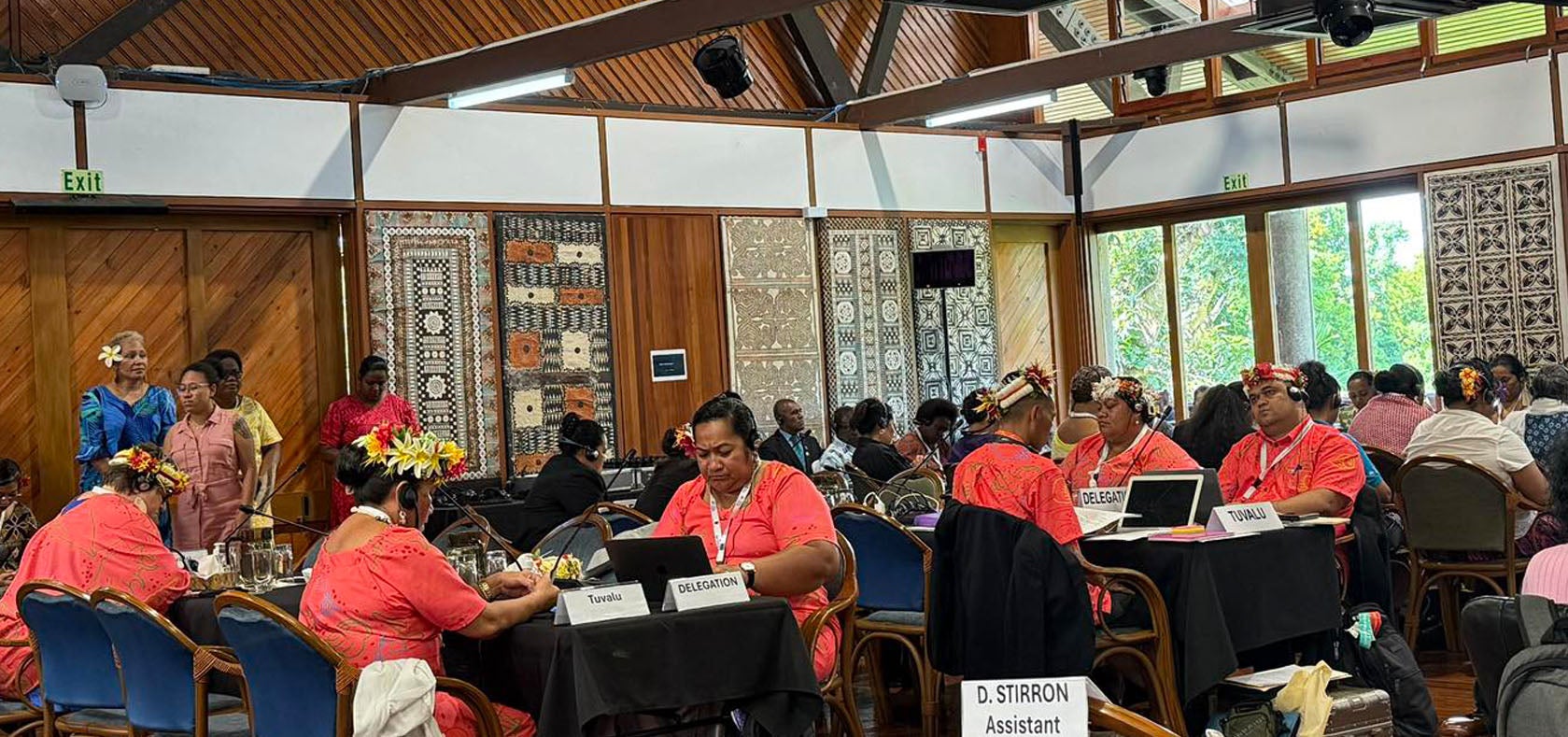Pacific governments strengthen preparedness through CEDAW mock sessions
Date:

The Pacific region is hosting the Committee on the Elimination of Discrimination against Women (CEDAW Committee)—a milestone moment in the region’s journey toward gender equality.
The Pacific Technical Cooperation Session, taking place in Suva, Fiji from 7–11 April 2025, brings together delegates from Pacific governments, civil society organisations, and women’s rights advocates to engage directly with members of the CEDAW Committee.
In the region, 13 Pacific countries have ratified CEDAW, while Niue, Palau, and Tonga remain among the few globally that have yet to do so. This session provides a unique platform to strengthen engagement with the CEDAW treaty body and accelerate progress across the region.
Ahead of the Session, mock sessions were held for the reporting countries—Fiji, Solomon Islands, and Tuvalu—supported by the Pacific Community (SPC), Pacific Islands Forum Secretariat (PIFS), UN Women Fiji Multi-Country Office, the UN Human Rights Office in the Pacific (OHCHR Pacific), and other UN partners, who acted as stand-ins for members of the CEDAW Committee.
For many delegates, the preparatory mock sessions have been instrumental in building confidence and capacity to navigate the CEDAW review process.
“The mock session is an excellent opportunity indeed for us not only to deepen our understanding of the CEDAW process, but also to practically engage with the mechanisms that hold governments accountable for the commitments of the rights of women,” said Hon. Sashi Kiran, Fiji’s Minister for Women, Children and Social Protection, who is leading the host country’s delegation.
The Government of Tuvalu has also welcomed the platform to prepare and collaborate ahead of its formal exchange with the Committee.
“Having this mock session has given us the enabling environment to anticipate our country exchange next week. I am very proud of my delegation... It’s very important for us to tell our story to the Committee members,” said Mrs. Laingane Italeli Talia, Tuvalu’s Attorney General and Head of Delegation.
Echoing this message, Mr. Sokotia Kulene, Assistant Secretary and Delegate from Tuvalu, highlighted the values underpinning the Convention:
“The rights of women are not just women’s rights—they are human rights. Together, we can create a more just and equitable Pacific.”
For the Solomon Islands, the session marks a major milestone in preparing a broader and more inclusive delegation for the first time.
“Most of our team are new to the CEDAW process. The mock session helped us understand the kinds of questions we’ll face and where we need to improve,” said Cedric Alependava, Permanent Secretary for Women.
“We’re working across ministries now to strengthen our responses and deliver a more comprehensive national statement. This has been a very constructive experience for us.”
Looking ahead, Alependava said the recommendations the Committee provides will guide national efforts post-session.
“They will help us focus our collaboration with civil society, NGOs, and faith-based groups to improve implementation across the 16 CEDAW articles.”
The Pacific Technical Cooperation Session of the CEDAW Committee is hosted by the Government of Fiji and jointly organised by the CEDAW Committee, the Pacific Community (SPC), the Office of the High Commissioner for Human Rights (OHCHR), UN Women, the Pacific Islands Forum (PIF), and The University of the South Pacific (USP).
SPC’s technical component and support for the session is made possible with funding from the Australian Government through the Pacific Women Lead at SPC.
As the region comes together for this historic engagement, the leadership shown by Pacific governments signals a strong step forward in ensuring that the commitments enshrined in CEDAW translate into meaningful progress for every woman and girl in the Pacific.